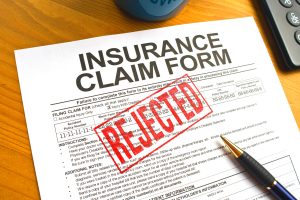The U.S. 11th District Court of Appeals recently affirmed a $1 million+ damage award for Florida bad faith insurance against a workers’ compensation insurer that refused to pay the policy limit for a construction accident injury that left the worker permanently paralyzed from the waist down. The case underscores the recourse available when insurers shirk their duties in an attempt to avoid paying rightful claims.
What is Florida Bad Faith Insurance?
Insurance companies – auto, health, workers’ compensation, homeowners’, property, life, disability, etc. – owe a duty to those they insure to act in good faith. That doesn’t mean they issue a payout for every claim. Rather, it means they can’t renege on their contractual obligations by engaging in dishonest practices to try to lowball or refuse to pay legitimate claims – or frustrate claimants so much with unnecessary red tape that they give up. Florida bad faith insurance claims can be made when an insurer fails to initiate a proper, timely investigation, tampers with witnesses, withholds evidence, makes unreasonable demands of claimants, fails to promptly settle meritorious claims, refuses to pay at all, offers to settle for far less than what the case is clearly worth, or drags their feet on payments.
As outlined in F.S. 624.155, Florida bad faith insurance encompasses a host of unethical practices, but it all comes down to this: The insurer did not attempt in good faith to settle claims when it could and should have done so had it been acting honestly and fairly toward the insured or other claimants.
As our Palm Beach bad faith insurance lawyers can explain, insurers can be maddening to deal with – and they’re clearly interested more in their own bottom line than much else. But whether their tactics fall under the umbrella of bad faith is a question for a lawyer.
Insurers tend to walk a fine line because while they aren’t eager to pay up, they also recognize that a proven bad faith insurance claim could result in them paying much more – possibly triple damages plus interest, attorneys’ fees, and court costs.
If you think an insurance company is treating you unfairly, it’s best to talk to a lawyer first. Sometimes simply involving a legal advocate who fully understands the law, the insurer’s obligations, and the claimant’s rights, is enough for the insurer to straighten up and fly right. But if it’s not, you will get the benefit of a legal expert confirming it for you – and helping you to strategically gather evidence to make a case for bad faith if it comes down to that. Continue reading
 South Florida Injury Lawyer Blog
South Florida Injury Lawyer Blog



